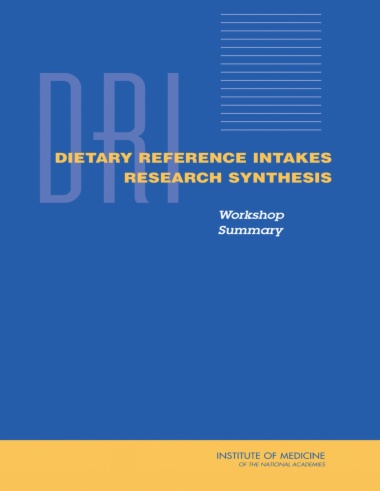

What information is available to inform the planning of a nutrition research agenda for the United States and Canada? This question provided the backdrop for the Dietary Reference Intakes Research Synthesis project undertaken by the Food and Nutrition Board of the Institute of Medicine (IOM) of the National Academies. The Dietary Reference Intakes (DRIs) are quantitative reference values for recommended intakes and tolerable upper intake levels for a range of nutrients. They are used widely by dietitians in individual counseling, by federal nutrition officials in program and policy development, and by the nutrition research and education communities in government, academia, and industry.
Between 1997 and 2005, the IOM published a series of six DRI reports covering a total of 45 nutrients, energy, and other food components. The IOM also issued two reports describing ways to apply the DRIs in assessment and planning. Together, these eight reports contain more than 450 research recommendations and thus a wealth of information pertinent to a nutrition research agenda. To make the recommendations more accessible, the Food and Nutrition Board undertook a project with two major elements: (1) the development of a searchable database of all the DRI research recommendations, and (2) the Dietary Reference Intakes
Research Synthesis Workshop, held June 7-8, 2006, which was designed to provide a venue for hearing and discussing experts' perspectives on the research recommendations identified in the DRI reports.
Two members of the workshop planning group—Drs. John W. Suttie and Susan J. Whiting—moderated the DRI Research Synthesis Workshop. After an overview and demonstration of the DRI Research Synthesis Database, panels of experts addressed DRI research recommendations related to each of the six DRI nutrient reports, the two DRI applications reports, and three cross-cutting topics: (1) setting DRIs for children, (2) Tolerable Upper Intake Levels, and (3) relevant new and underutilized research techniques. This report is a summary of the workshop presentations and discussions.